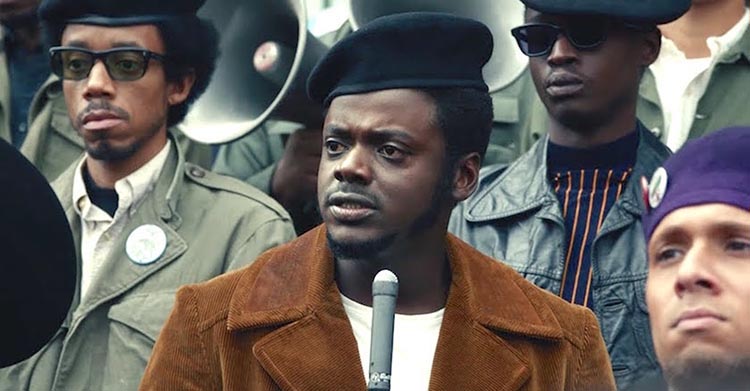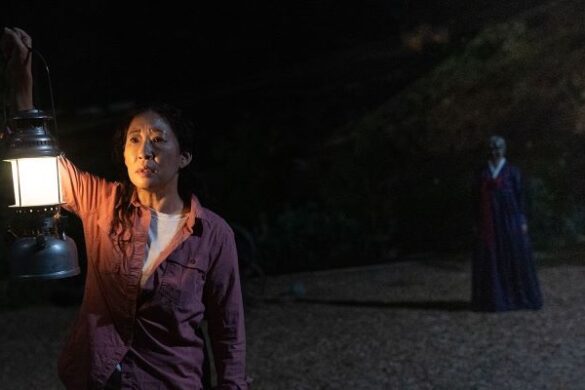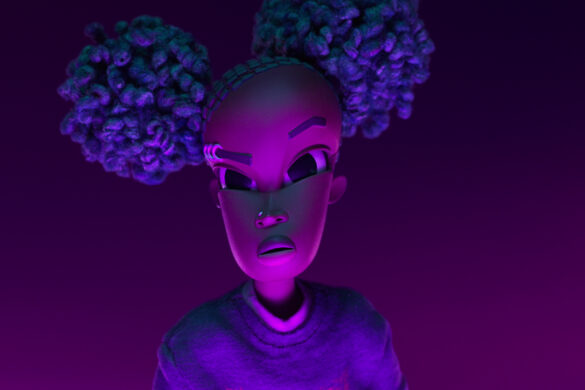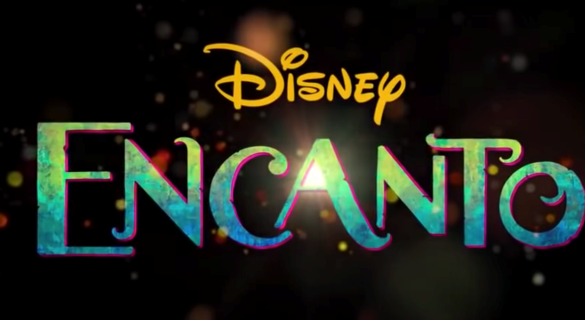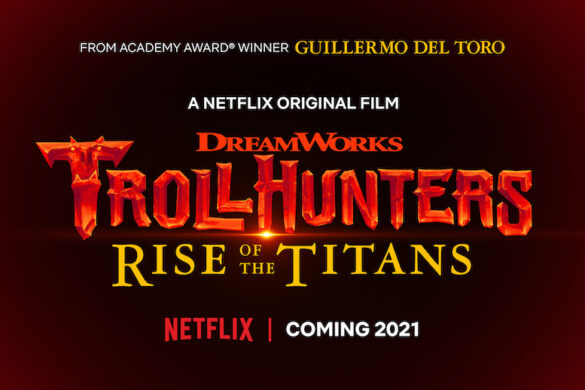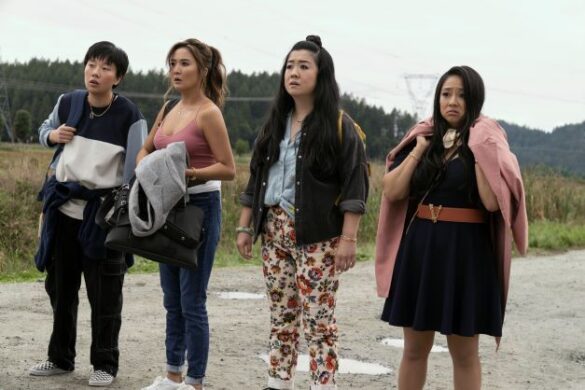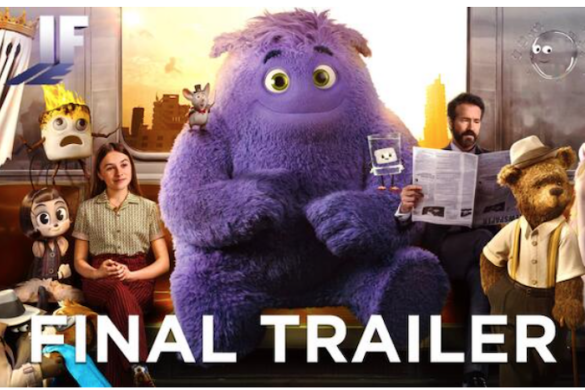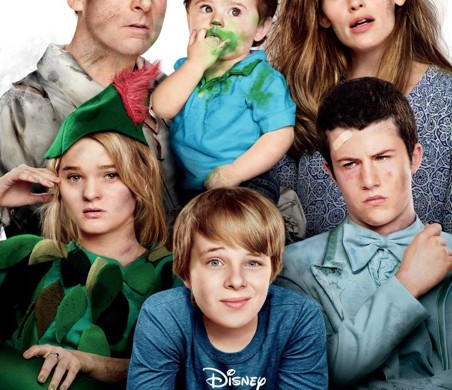In 2020, the unjustified deaths of George Floyd, Breonna Taylor, and Ahmaud Arbery at the hands of police revealed a broken justice system’s long legacy of corruption. These senseless deaths inspired the Black Lives Matter movement to protest the institutions’ disregard for the lives of Black lives, while also calling for major police reform. These events have striking echoes of that past where the Black Panthers also protested against the same injustices that targeted minorities during the Civil Rights movement of the 1960s while also showing support for disenfranchised Blacks. And Shaka King’s “Judas and the Black Messiah” weaves in both narratives as to celebrate the life of Fred Hampton, a civil rights activist, and bringing attention to the FBI’s plot to assassinate him.
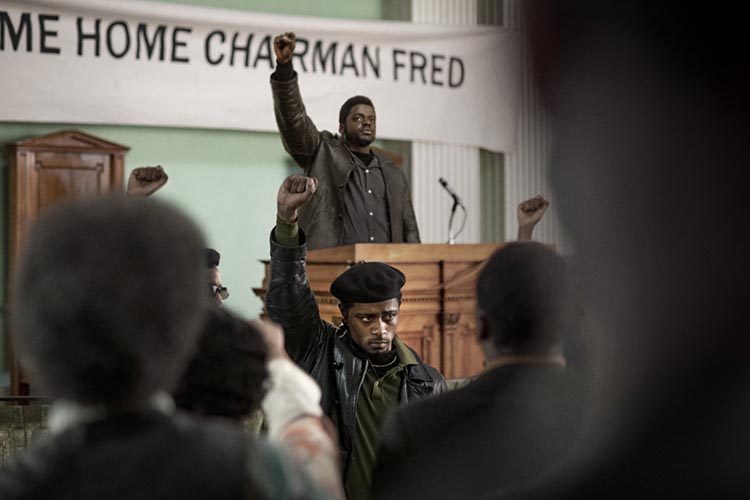
The film opens with archive footage of an interview with Bill O’Neal (LaKeith Stanfield), who is asked what he would tell his son about his activities in the mid-1960s and early 1970s. The film then quickly transitions to archive footage of a revolution happening within the Black community, including protests and conflicts with the police. Headlines using specific words like “riot” to depict Blacks in a negative light. Other clips show Black Panthers members teaching its young about its founders Huey P. Newton and Bobby Seale. The latter speaks about free medical clinics, free breakfast programs for children, educational programs, and legal aid to help the disenfranchised.
All of this happens while The Watts Prophets’ “Dem Niggers Ain’t Playing” is playing in the background. It’s a powerful song that reflected the revolution that was brewing while referencing the fires that consumed Black cities.
The contrasting scene of FBI director J. Edgar Hoover (Martin Sheen) spreading misinformation about the Black Panthers, who he sees as a threat equal to China and Russia, reveals the history of a rigged system working against the people they are supposed to protect. Hoover targets Fred Hampton, of the Illinois chapter of the Black Panthers, as a Black Messiah and a radical threat who has the potential to unite the communists, the anti-war group, and the left to rise against them.
The film then introduces the audience to William O’Neal, a lowly car thief posing as a police officer in order to scare his victims into giving up their cars. But when the law catches up to him, FBI agent Roy Mitchell (Jesse Plemmons) offers to have all of the felony charges dropped in exchange to infiltrate the Black Panthers as an FBI informant. With no real way out, O’Neal takes up the offer.
It’s the mid-1960s, and Fred Hampton (Daniel Kaluuya), chairman of the Illinois chapter of the Black Panther Party, educates a young crowd about the differences between revolution and reform. He says there is no real change with reform, and the only way to bring about real change is through revolution. Although, it is not the kind of revolution associated with violence. Instead, he wants to bring this significant change through the act of unification by the brokering of a nonaggression pact among Chicago’s most powerful street gangs. He firmly believes there’s strength in numbers, and anywhere there are people, there’s power.
Hampton speaks of using other non-violent means of protest to make their voices heard. He doesn’t want to fight fire with fire, but with water. He doesn’t want to fight racism with racism but with solidarity. And he doesn’t want to fight capitalism with Black capitalism but with socialism. Meanwhile, the FBI is subverting his message by sowing disinformation and creating artificial conflict between various minority groups. These two scenes help establish the stark differences between an all-powerful American institution wrought with racism and corruption and a movement fighting for equality amongst the masses.
Though Hampton’s words may put out some people, it instantly connects with Deborah Johnson (Dominique Fishback), who will eventually become his speechwriter. She suggests changing his words to prevent people from walking out on his speeches. But Hampton is more than a recruiter. He is also an educator. He teaches his members how war is politics with bloodshed, and politics is war without the bloodshed. Because they will not win this war with conventional weapons, they will win it with people. And Hampton’s words resonate with Bobby Rush (Darrell Britt-Gibson) and Jake Winters (Algee Smith). It’s not too long before we see a disinterested O’Neal sitting in the same room misinterpreting Hampton’s lecture.
As the film moves on, it establishes the Judas and Messiah metaphorical relationship between O’Neal and Hampton. Though it is a rocky start between the two, O’Neale eventually gains Hampton’s trust by putting himself on the front lines when Hampton’s life is threatened during an outreach effort to one of Chicago’s most notorious gangs. As a result, he comes a driver and security personnel. But other members aren’t so trusting as O’Neal’s criminal past catches up with him and threatens to undo what Hampton is trying to accomplish.
“Judas and the Black Messiah’s” marketing may try to depict its titular betrayer as a man who is caught in a morally compromising position. Still, O’Neal’s narrow focus on money is a reflection of his selfishness. And the danger to himself becomes all too real once he hears about the torture and murders that happen to the FBI informants whose identities are revealed. As the fear sets in, O’Neal starts to realize that he is in way over his head. Though he may support the Black Panthers, the FBI pressures him to give him the information they need or serve a six and a half year sentence in jail. And he becomes more unnerving once he meets others like him in the most unexpected places.
King and co-writer Will Berson’s script frame Hampton’s good works as a contemporary Jesus Christ. And a lot of that comes through in more than just Hampton’s rhetoric, but his actions as well. He is able to broker peace through a nonaggression pact among Chicago’s most powerful street gangs while offering programs to help support the disenfranchised. Because you can’t fight racism with racism, you fight it with solidarity. And you don’t fight capitalism with no black capitalism; you fight it with socialism.
The FBI sees Hampton as a Black Messiah, they will use dirty tactics like harassment, intimidation, and violence to break him and destroy his mission. Sheen’s Hoover equates Hampton as an evil that is greater than communist foreign nations. But the FBI’s racism shows three white agents are discussing how to use the word dig in a fake newsletter meant to spread disinformation and dissent amongst the groups that Hampton is trying to connect with. They eventually escalate to violence because of Hampton’s persistence. While O’Neal goads him to retaliate, Hampton doesn’t take the bait and persists in continuing peaceful protests and beneficial programs in order to achieve equality from the masses.
Kaluuya embodies the real-life Hampton, capturing all of the nuances and the physicality of the civil rights activist. The contents of this speech are delivered in a compelling way, one that demands your attention. Though Hampton is a Civil-Rights era Christ-like figure who uses words as weapons, King shows us the gentle side underneath that tough exterior. We see his vulnerabilities whenever he is around Johnson, who is the mother of his child. And when he discovers that he will be a father, we see how protective he can be.
On the aesthetic front, Craig Harris and Mark Isham’s score is exceptional, and features it an original song titled “Fight for You” performed by H.E.R. While production designer Sam Lisenco and costumer Charlese Antoinette Jones helps recreate the Hampton’s activism and pursuit of unity during the Civil Rights era of the 1960s.
There are many parallels between “Judas and the Black Messiah” and the events that are happening today. While it has been over 40 years since the FBI murdered Hampton, not much has changed since then. The film validates the voices of those who suffered the same racial injustice by not holding back on depicting the brutal crimes carried out on the Black community. At the same time, it also recognizes how powerful unification can be and the benefits it yields when disenfranchised groups work to support each other. And King’s film addresses the natures of both in a cinematic way that is also very enlighteningand relevant.
“Judas and the Black Messiah” opens in theaters and on HBO Max (for 31 Days) on February 12, 2020.
10/10

